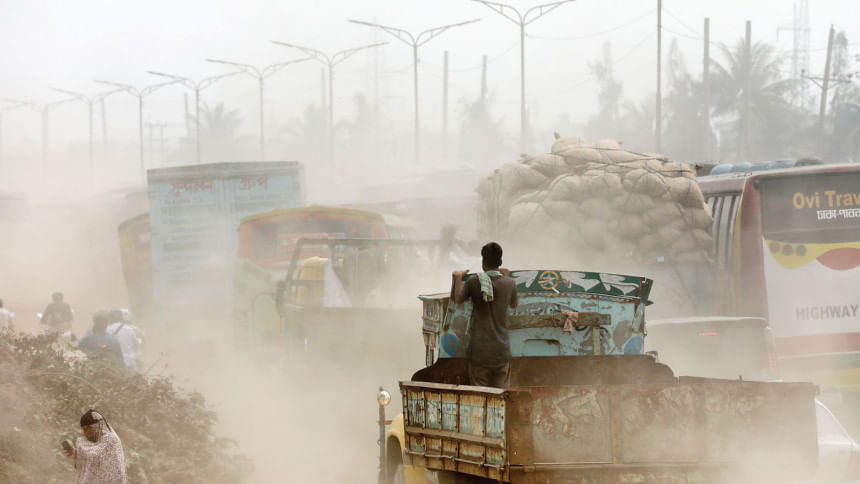Air pollution caused 8.1m deaths globally in 2021: Unicef

Air pollution is having an increasing impact on human health, becoming the second leading global risk factor for death, according to the fifth edition of the State of Global Air (SoGA) report.
The report found air pollution accounted for 8.1 million deaths globally in 2021, said a statement published by Unicef on its website.
Beyond these deaths, many more millions of people are living with debilitating chronic diseases, putting tremendous strains on healthcare systems, economies, and societies.
The report finds that children under five years old are especially vulnerable, with health effects including premature birth, low birth weight, asthma and lung diseases.
The report was released today by the Health Effects Institute (HEI), an independent US-based nonprofit research organization. It was produced for the first time in partnership with Unicef.
In 2021, exposure to air pollution was linked to more than 700,000 deaths of children under five years old, making it the second-leading risk factor for death globally for this age group, after malnutrition.
A staggering 500,000 of these child deaths were linked to household air pollution due to cooking indoors with polluting fuels, mostly in Africa and Asia.
The severe health impacts pollutants like outdoor fine particulate matter (PM2.5), household air pollution, ozone (O3), and nitrogen dioxide (NO2) are having on human health around the world, the report shows.
The report includes data from more than 200 countries and territories worldwide, indicating that nearly every person on earth breathes unhealthy levels of air pollution every day, with far-reaching health implications.
Over 90 percent of these global air pollution deaths – 7.8 million people – are attributed to PM2.5 air pollution, including from ambient PM2.5 and household air pollution.
These tiny particles, measuring less than 2.5 micrometers in diameter, are so small they remain in the lungs and can enter the bloodstream, affecting many organ systems and increasing the risks for noncommunicable diseases in adults like heart disease, stroke, diabetes, lung cancer, and chronic obstructive pulmonary disease (COPD).
"We hope our State of Global Air report provides both the information and the inspiration for change," said HEI President Dr. Elena Craft.
"Air pollution has enormous implications for health. We know that improving air quality and global public health is practical and achievable," said the HEI President.
Children's Health
The report shows some of the greatest health impacts of air pollution are seen in children. Children are uniquely vulnerable to air pollution and the damage from air pollution can start in the womb with health effects that can last a lifetime. For example, children inhale more air per kilogram of body weight and absorb more pollutants relative to adults while their lungs, bodies and brains are still developing.
"Despite progress in maternal and child health, every day almost 2000 children under five years die because of health impacts linked to air pollution," said Unicef Deputy Executive Director Kitty van der Heijden.
Progress Being Made
Since 2000, the death rate linked to children under five has dropped by 53 per cent, due largely to efforts aimed at expanding access to clean energy for cooking, as well as improvements in access to healthcare, nutrition, and better awareness about the harms associated with exposure to household air pollution.
Air quality actions in regions like Africa, Latin America, and Asia, such as installing air pollution monitoring networks, implementing stricter air quality policies, or offsetting traffic-related air pollution by moving to hybrid or electric vehicles, are all having measurable impacts on pollution and improving public health.

 For all latest news, follow The Daily Star's Google News channel.
For all latest news, follow The Daily Star's Google News channel. 



Comments